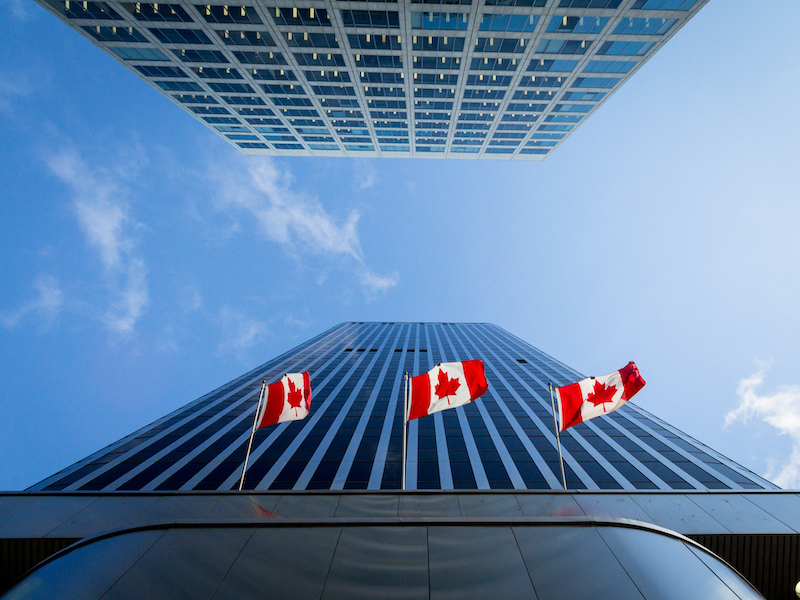
As cracks appear in the U.S. economy, the Trump Administration’s chaotic approach to trade policy will have to stabilize — likely sooner rather than later, according to CIBC Capital Markets.
In a new report, the bank’s economists say that economic forecasting has essentially become “impossible” in the current environment.
“Nobody, including the Fed and the Bank of Canada, is brave enough to provide a pointed forecast with any conviction,” it said.
Against this backdrop, the U.S. administration’s willingness to persist with its current approach to trade and tariffs will likely be dependent on the U.S. economy’s ability to absorb the negative shock inflicted by its turn to protectionism.
“Yes, the U.S. is more self-sufficient than most of its trading partners, but it is not an island,” the report said.
Already, business and consumer confidence in the U.S. have dropped in the face of elevated policy uncertainty, it noted.
“Nowadays, we talk to U.S. CEOs as regularly as we talk to Canadian ones, and we find that the level of confusion south of the border is just as high as it is in Canada,” it said — and this confusion is “clearly weighing on business sentiment and capital spending intentions,” it said.
Alongside the spike in negative sentiment, the drop in equity markets is also weighing on household finances, and ultimately consumer spending, it noted.
“Equity market gains had become a significant source of income growth in previous years, with dividend income being the second fastest component of personal income growth since pre-Covid, easily outpacing gains in employee compensation,” the report said.
In particular, equities account for a larger component of net worth for the top 20% of income earners, which generate 40% of annual consumer spending on average.
The combination of falling portfolio values undermining income growth at the top of the income chain, and weaker labour market conditions for lower-income households, has also driven up defaults in credit cards and auto loans, it noted.
At the same time, tariffs also pose an upside risk to inflation, the report said.
“Taken together, these signs of fragility in growth indictors, and upward pressure on inflation, are behind our assessment that time is not on the president’s side, with every day that passes revealing more wounds in the U.S. economy and rising inflation fears,” it said.
“The administration will therefore have to stabilize the situation sooner rather than later, including a move to a less protectionist stance,” the report concluded.